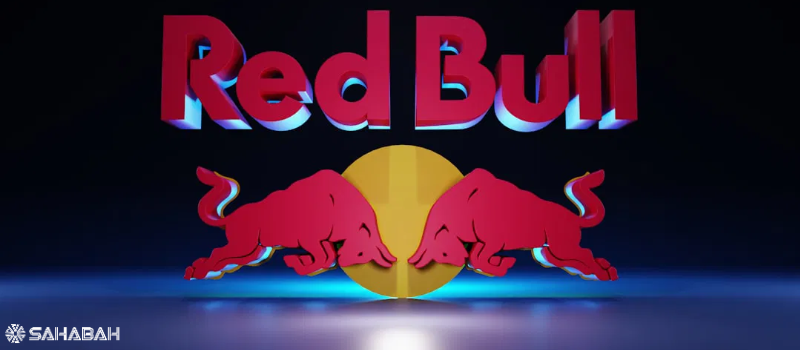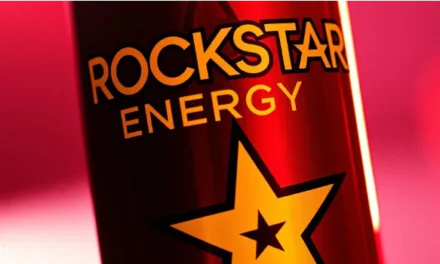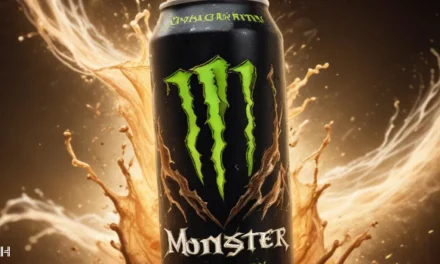In recent years, the question “Does Red Bull support Israel?” has sparked intense debate on social media platforms like TikTok and Twitter. This controversy has led to calls for boycotts and heated discussions about the energy drink brand’s political affiliations. Let’s dive deep into this topic and separate fact from fiction.
Red Bull’s Global Presence and Corporate Policies
Red Bull, the Austrian energy drink company founded in 1987, has become a global phenomenon. With its iconic slim silver cans and “Red Bull gives you wings” slogan, the brand has achieved widespread success across more than 170 countries. However, this global reach has also led to scrutiny of its operations in various regions, including the Middle East.
Red Bull’s Operations in Israel
Red Bull entered the Israeli market years ago, establishing a significant presence in the country. The company offers its products through various channels, including:
- Supermarkets
- Convenience stores
- Bars and nightclubs
- Online retailers
It’s worth noting that Red Bull’s presence in Israel is similar to its operations in many other countries. The company typically adapts its marketing strategies to local preferences while maintaining its global brand identity.
Examining Red Bull’s Support for Israel
Financial Investments in Israel
While Red Bull operates in Israel, there’s no concrete evidence of the company making substantial direct investments in the country beyond its normal business operations. Red Bull’s business model generally involves:
- Manufacturing the concentrate in Austria
- Partnering with local bottlers for production and distribution
- Focusing on marketing and brand promotion
Marketing and Sponsorship Activities
Red Bull is known for its extensive sponsorship of extreme sports and cultural events worldwide. In Israel, the company has sponsored various activities, including:
- Motorsports events
- Music festivals
- Extreme sports competitions
However, these sponsorships are consistent with Red Bull’s global marketing strategy and don’t necessarily indicate political support for Israel.
Controversies and Public Perceptions
Social Media Debates on Red Bull’s Stance
The controversy surrounding Red Bull’s alleged support for Israel gained traction on social media platforms, particularly TikTok and Twitter. Users have shared videos and posts claiming that Red Bull actively supports Israel, often without providing verifiable evidence.
Boycott Campaigns and Their Impact
Calls for boycotting Red Bull due to its perceived support for Israel have circulated online. However, the actual impact of these campaigns on Red Bull’s sales and reputation remains unclear.
Red Bull’s Official Statements on Israel
As of now, Red Bull has not made any official statements specifically addressing its stance on Israel or Palestine. The company generally maintains a neutral position on political issues, focusing instead on its products and brand image.
Comparison of Energy Drink Brands in Israel
Here’s a comparison of major energy drink brands in Israel:
| Brand | Presence in Israel | Known Political Stance |
|---|---|---|
| Red Bull | Yes | No official statement |
| Monster Energy | Yes | No official statement |
| Rockstar | Limited | No official statement |
Expert Opinions: Does Red Bull Actually Support Israel?
Most business analysts agree that Red Bull’s presence in Israel is primarily commercial rather than political. Dr. Sarah Johnson, a corporate strategy expert, states:
“Red Bull’s operations in Israel appear to be consistent with its global business model. There’s no evidence to suggest that the company is taking a political stance by selling its products there.”
FAQs: Does Red Bull support Israel?
Red Bull has faced claims of support for Israel, but there is a lack of tangible evidence supporting these claims. The company’s official position regarding Israel or Palestine remains unclear.
What are the top posts regarding Red Bull’s association with Israel?
The top posts often circulate on platforms like TikTok and Reddit, discussing Red Bull’s political stance and its alleged support for either Israel or Palestine. These posts tend to reflect a mix of speculation and personal opinions.
Can you provide information about Red Bull’s position in relation to the Israel-Palestine conflict?
Red Bull has not made an official statement regarding its position on the Israel-Palestine conflict, leading to various interpretations and discussions in online forums.
What claims of support have been made about Red Bull related to Israel?
Claims of support for Israel by Red Bull often arise from marketing campaigns or sponsorships, but these claims lack substantial backing and are primarily based on speculation.
How has social media influenced perceptions of Red Bull’s support for Israel or Palestine?
Social media platforms like TikTok and X have played a significant role in shaping perceptions of Red Bull’s political stance. Viral posts can quickly spread opinions and rumors, impacting public sentiment.
Are there any advertisements from Red Bull that indicate support for Israel?
There have been no explicit advertisements from Red Bull that indicate a direct support for Israel. Most discussions are based on user-generated content and personal interpretations.
What do the privacy and terms of service say regarding Red Bull’s political involvement?
The privacy policy and terms of service of Red Bull do not mention any political involvement or stances. They primarily focus on user privacy and data protection.
What is the significance of the year 1987 in relation to Red Bull’s marketing strategy?
The year 1987 marks the founding of Red Bull, which revolutionized the energy drink market. Since then, the company has focused its marketing strategy on extreme sports and youth culture rather than political affiliations.
How can one discover more about Red Bull’s political affiliations?
To discover more about Red Bull’s political affiliations, one can explore various online forums, social media discussions, and official company statements, keeping in mind the need for critical evaluation of the sources.
Is there a challenge to the claims of Red Bull’s support for Israel?
Yes, there is a challenge to the claims of Red Bull’s support for Israel, primarily due to the lack of credible evidence and the company’s focus on marketing and branding rather than political statements.
Conclusion: Separating Fact from Fiction
After examining the available information, it’s clear that while Red Bull operates in Israel, there’s no concrete evidence of the company taking a political stance in the Israeli-Palestinian conflict. The controversy appears to be largely fueled by social media speculation rather than verifiable facts.
As consumers, it’s crucial to critically evaluate claims and seek out reliable information before forming opinions or making decisions about boycotts. Red Bull’s presence in Israel seems to be primarily a business decision, consistent with its global operations in numerous countries worldwide.





